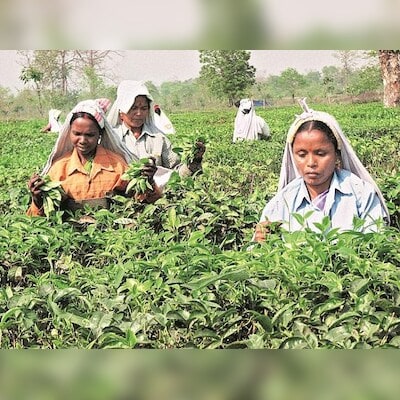In 2022, the orthodox tea market was buoyant as the situation in Sri Lanka had changed in favour of India. However, with exports under pressure in 2023, tea prices softened, Shah said.
Slow growth in domestic consumption, rising food inflation and slow recovery in exports post Covid pandemic are some of the challenges facing the tea industry, a senior official said.
Tea growers associations and the Tea Board of India have been concerned about the subdued growth in demand in the country, he said.
The comments were made by Sanjay Shah, president of the Federation of All India Tea Traders Associations (FAITTA), during its 10th annual general meeting here on Saturday evening.
As FAITTA retailers, we are witnessing the market movements closely. It is a fact that loose tea consumption has gradually given way to packaged tea, Shah said.
Rising levels of food inflation also remain a cause for concern as they negatively impact consumption, he said.
Since incomes do not adjust as quickly as prices, high inflation in commodities tends to negatively affect demand for non-essential products. Even in the case of essential commodities, consumers may opt for lower-priced non-premium products, he said.
The FAITTA president also said there are underlying concerns about the market’s ability to absorb the several rounds of price increases (for tea), which have been inevitable given the sharp rise in prices of major commodities last year.
With some recovery in demand since the pandemic period, average prices in 2022-23 were Rs 180 per kg, he said.
In 2022, the orthodox tea market was buoyant as the situation in Sri Lanka had changed in favour of India. However, as exports came under pressure in 2023, tea prices softened, Shah said.
The situation in 2024 has changed significantly. Looking at the combined prices of leaf and powder tea from North India, prices are almost 46 percent higher than the corresponding levels of last year, the FAITTA official said.
Shah said tea production in calendar year 2023 closed at 1,393 million kg as against 1,366 million kg in 2022.
Regarding exports, he said that after successive years of exceeding 250 million kilograms, shipments declined sharply in 2020 and 2021. Exports registered some recovery in 2022, reaching 231 million kilograms. In 2023, exports closed at 228 million kilograms.
After many years of relative stagnation, Indian tea exports appear to be on a further growth trajectory, Shah added.
(Only the headline and image of this report may have been reworked by Business Standard staff; the rest of the content is auto-generated from a syndicated feed.)
First published: September 1, 2024 | 14:22 IS
Disclaimer:
The information contained in this post is for general information purposes only. We make no representations or warranties of any kind, express or implied, about the completeness, accuracy, reliability, suitability or availability with respect to the website or the information, products, services, or related graphics contained on the post for any purpose.
We respect the intellectual property rights of content creators. If you are the owner of any material featured on our website and have concerns about its use, please contact us. We are committed to addressing any copyright issues promptly and will remove any material within 2 days of receiving a request from the rightful owner.

